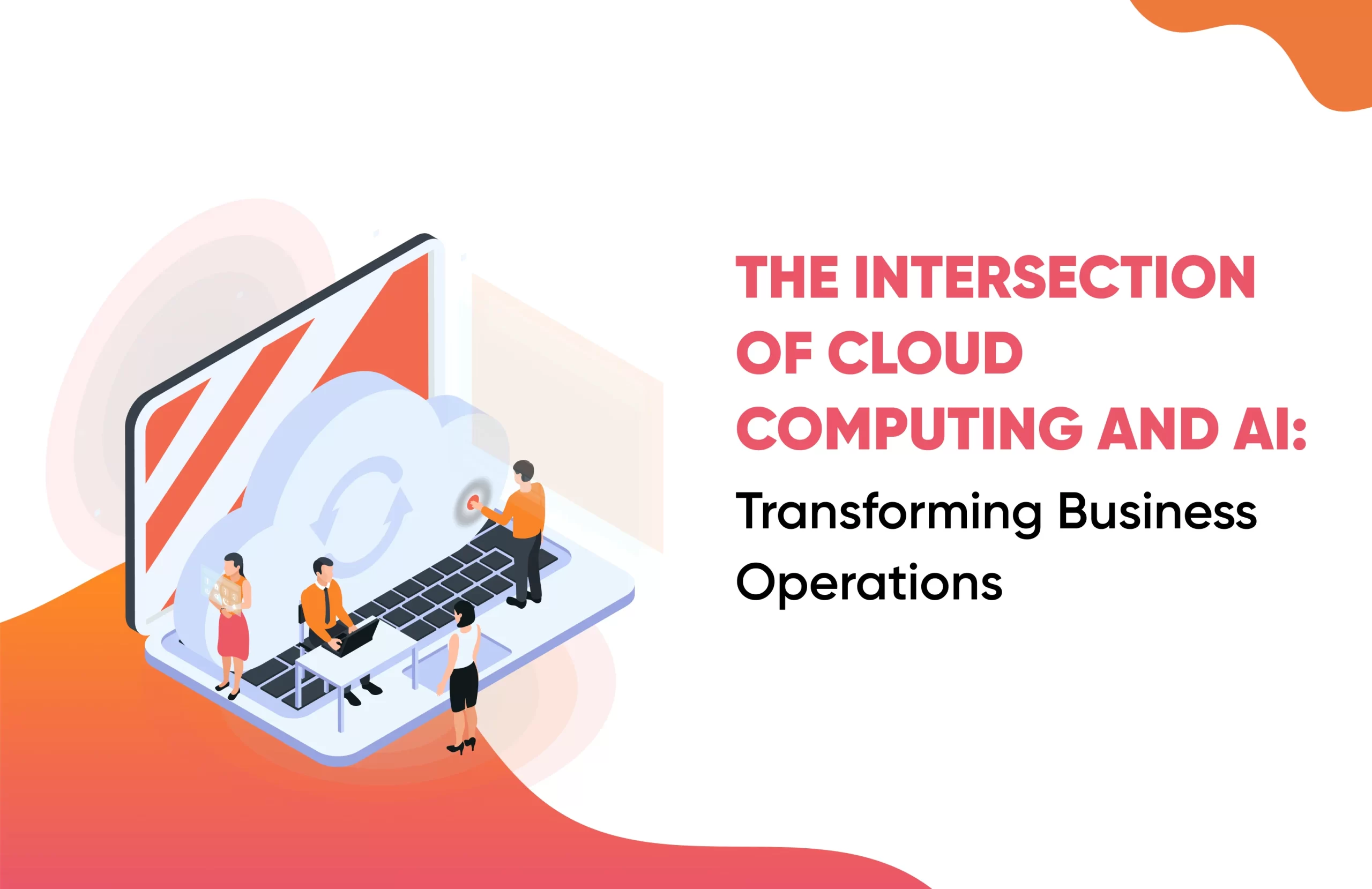In today’s fast-moving business world, the mix of machine learning and cloud computing is like a game-changer. It’s not just about using fancy tech; it’s about doing things smarter. Think of it as a new way of working: being quick, creative, and using data to make better decisions.
As companies dive into this digital world, they’re finding that combining the scalable power of cloud computing with the smart thinking of AI is a recipe for success. From managing resources better to understanding customers more deeply, this blend of technologies is reshaping how businesses run. And thus, make them more efficient, adaptable, and successful.
This collaboration is not just a trend; it’s becoming the norm for businesses striving to stay ahead in today’s competitive market. According to Mordor Intelligence, the cloud AI market is expected to reach USD 274.54 billion by 2029. Currently, the market stands at $67.56 billion in 2024. Moreover, PYMNTS reports that, in Q3, 2023, Tech giants such as Amazon, Google, and Microsoft poured a combined $42 billion into cloud services to meet the AI demands of 2024.
These impressive numbers highlight the potential of this combination. So, let’s sail on this journey through the dynamic realm of this powerful combo, where innovation knows no bounds.
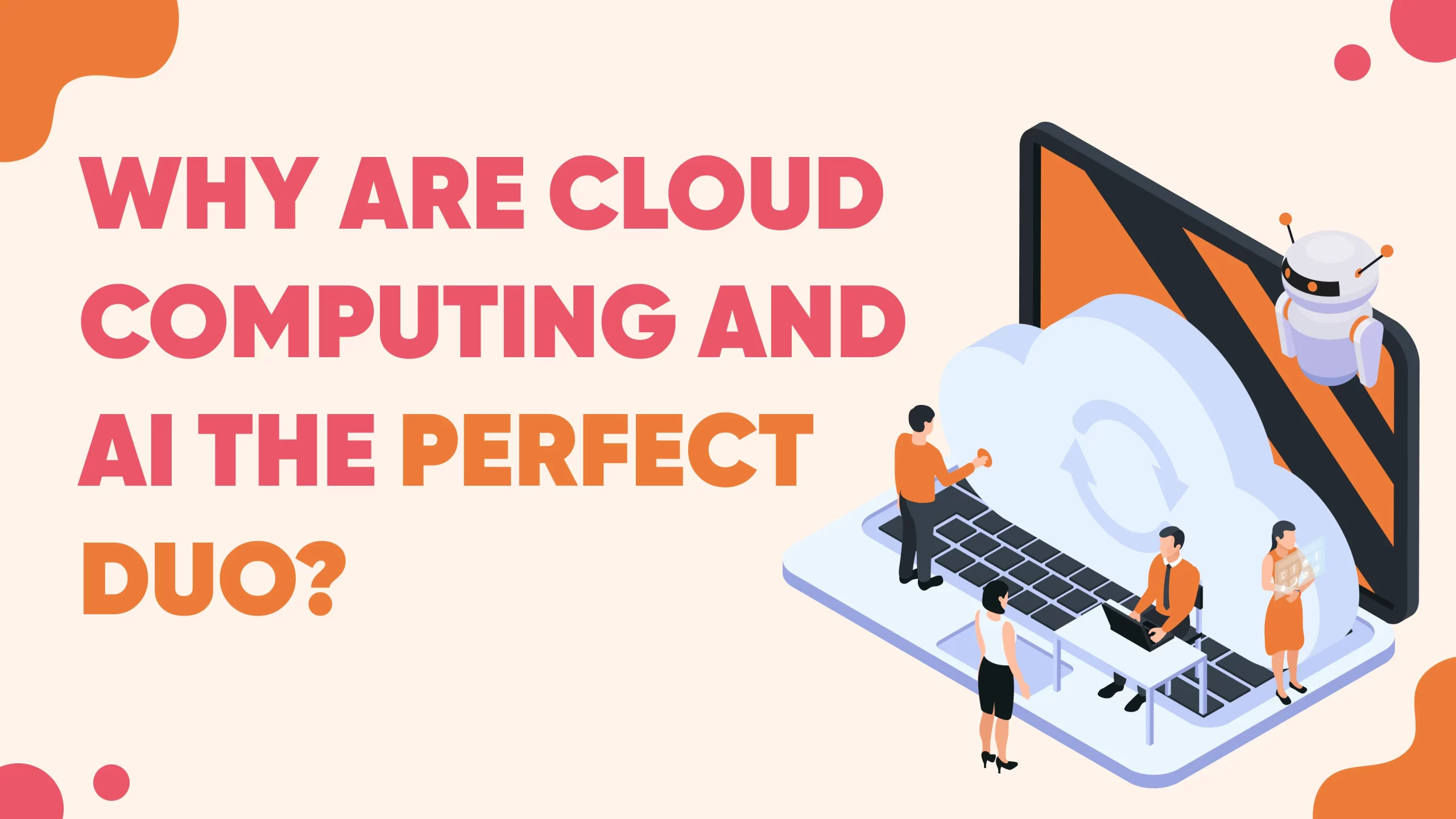
Why are Cloud Computing and AI the perfect duo?
Cloud computing and machine learning are like the dream team for businesses. Cloud platforms provide the flexible space needed for machine learning to do its magic. It’s like having a giant toolbox full of resources whenever needed.
And here’s where machine learning shines; it takes all that data stored in the cloud and turns it into helpful insights. Think of it like having a super-smart assistant who can analyze all your information and give you useful tips to grow your business.
For example, we have AI-powered customer service chatbots that are always ready to help customers with personalized advice. Then, fraud detection algorithms dig through heaps of data to catch any fishy business happening in real time.
Together, cloud computing and machine learning create a powerhouse duo, transforming how businesses operate and helping them thrive in today’s fast-paced world.
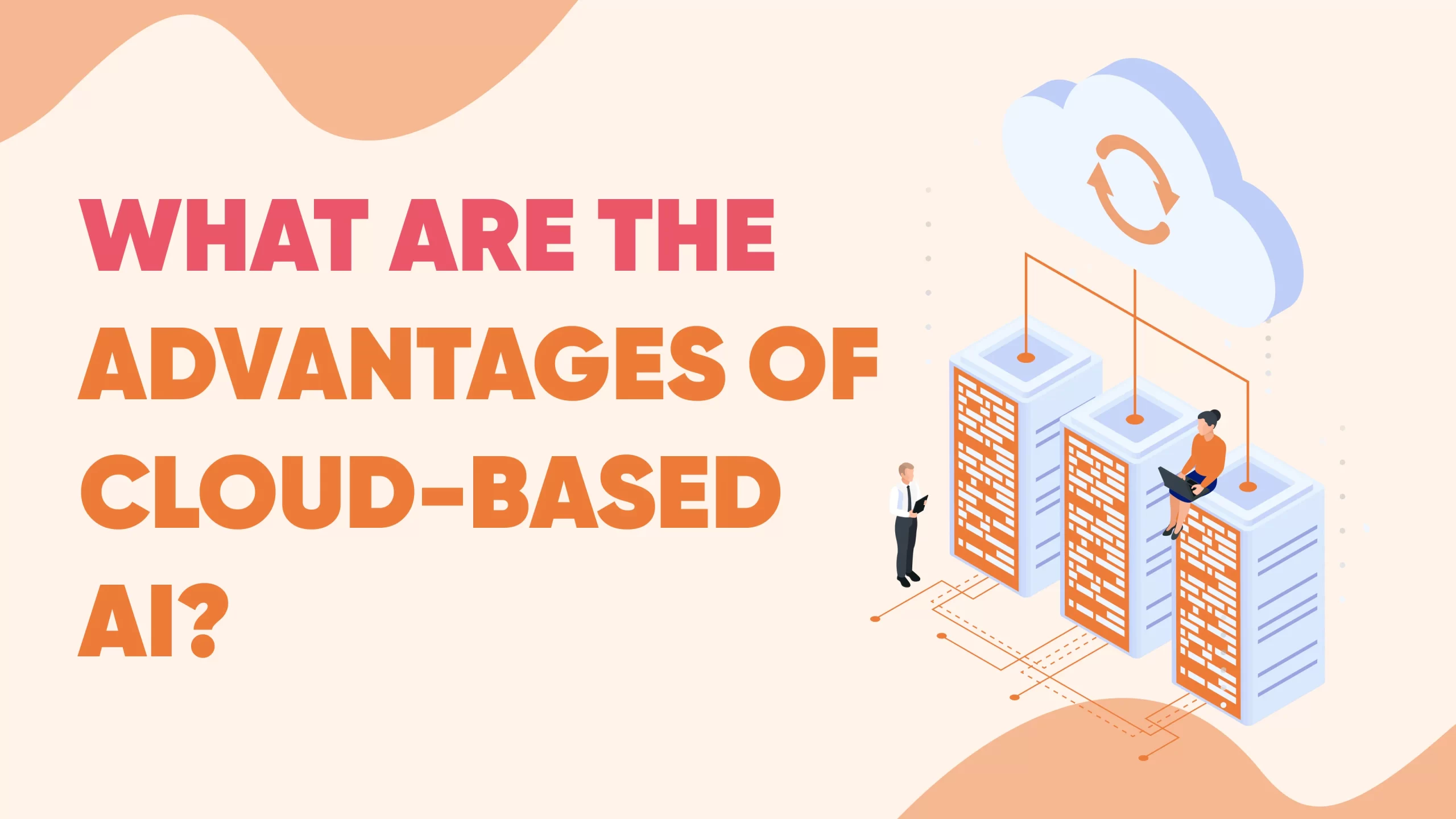
What are the Advantages of Cloud-based AI?
Cloud computing and AI are a match made in tech heaven, offering a plethora of benefits for businesses seeking to seamlessly integrate AI into their operations. The primary advantages of cloud-based AI are listed below:
-
Enhanced Data Processing and Analysis
By leveraging the scalability of cloud computing, organizations can easily accommodate the computational requirements of AI algorithms. This means they can quickly scale up or down their computing resources based on demand, allowing them to handle large datasets and complex AI tasks efficiently.
This collaboration helps extract crucial insights, spot emerging trends, and make informed decisions quickly. Consequently, businesses gain a competitive edge and foster sustainable growth in today’s fast-paced environment.
-
Improved Accessibility and Collaboration
With AI in the cloud, organizations gain effortless access to AI tools and resources from any location with an internet connection. This accessibility facilitates the rapid development and deployment of AI-powered solutions, providing organizations with a competitive advantage in the market. Moreover, this accessibility promotes seamless collaboration among teams, enabling them to share insights, collaborate on projects, and foster innovation more effectively. Thus, enhancing overall productivity and performance.
-
Streamlined Integration
Cloud-based AI solutions integrate seamlessly with existing IT infrastructure and applications, allowing organizations to maximize their current technology investments. This streamlined integration facilitates the widespread adoption of AI across various business functions, ranging from marketing and sales to finance and operations. Moreover, the scalability feature further helps in easy integration with adjustable resources, thereby enhancing flexibility and agility.
-
Cost-effectiveness
When it comes to technology for businesses, integrating cloud computing in AI offers a cost-effective solution. While both cloud computing and AI come with their respective costs, a cloud-based AI solution proves to be more economical than purchasing them separately. Additionally, such a solution provides optimized technology, ensuring efficient operations and enhanced decision-making capabilities.
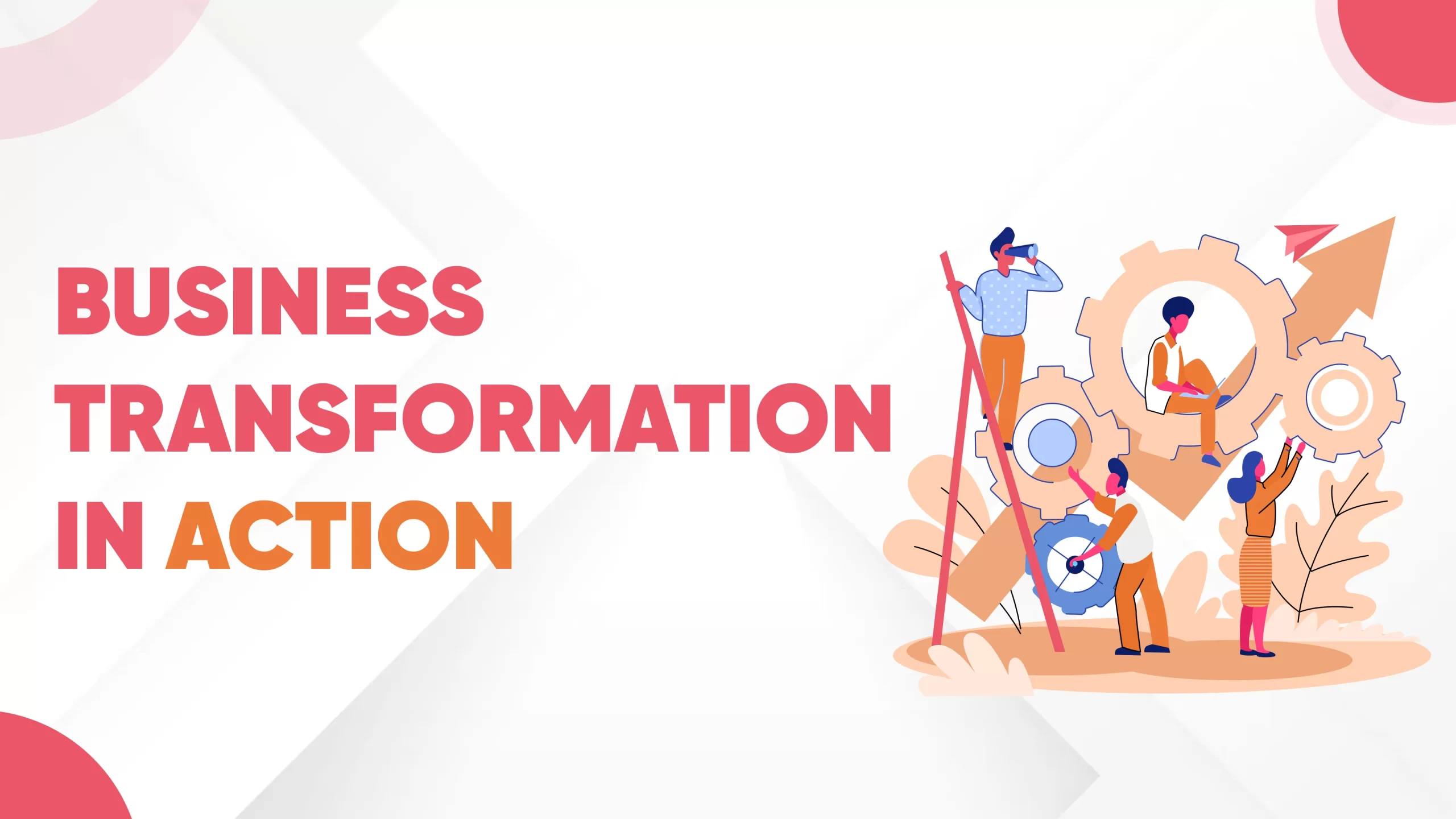
Business Transformation in Action
The impact of cloud and AI extends across various facets of business operations, revolutionizing traditional practices and unlocking new possibilities.The primary aspects of the business that AI impacts in cloud are as follows:
-
Marketing and Sales
In the world of marketing and sales, artificial intelligence and cloud computing work hand in hand, allowing businesses to tap into massive data pools for personalized campaigns. Cloud computing offers the storage and processing power needed to handle large datasets securely.
AI algorithms operating on this cloud setup analyze customer behavior, preferences, and past purchases to craft tailored recommendations. These suggestions reach customers through websites, mobile apps, and email, boosting engagement and conversion rates.
-
Operations and Supply Chain
In operations and supply chain management, the collaboration of AI and cloud computing is transforming supply chain processes. Cloud platforms provide the scalable infrastructure required to gather, store, and analyze vast amounts of data from sensors and IoT devices across the supply chain. AI algorithms, powered by this cloud environment utilize machine learning techniques to forecast equipment failures, optimize inventory levels, and improve logistics.
For example, predictive maintenance algorithms study sensor data to identify patterns signalling potential failures, enabling proactive maintenance and minimizing downtime. Similarly, demand forecasting models analyze historical sales data and market trends to predict future demand accurately, ensuring optimal inventory management and product availability.
-
Finance and Accounting
The fields of finance and accounting are not different. AI cloud computing is revolutionizing how businesses handle financial processes, detect anomalies, and manage risks. Cloud-based accounting software serves as a central hub for securely storing financial data, accessible from anywhere at any time. AI algorithms operating within this cloud infrastructure analyze transaction data to spot fraudulent activities, automate reporting, and offer insights for risk management.
For instance, AI-powered fraud detection systems scrutinize transaction patterns to flag anomalies indicative of fraudulent behavior, safeguarding businesses from financial losses. Automated reporting tools leverage machine learning algorithms to generate financial reports swiftly and accurately, reducing manual workload and improving data precision. By harnessing the combined power of AI in cloud computing, businesses enhance financial transparency, compliance, and decision-making, fostering sustainable growth and profitability.
-
Human Resources
In human resources, the fusion of AI in the cloud has changed how businesses use it to attract, nurture, and retain talent. Cloud-based HR platforms provide a unified system for securely managing employee data, performance evaluations, and training records. AI-driven algorithms analyze data to automate candidate screening, identify skill gaps, and personalize employee engagement strategies.
For example, AI-powered recruitment platforms utilize machine learning algorithms to analyze resumes and identify candidates matching job requirements. Ultimately streamlining the hiring process and improving candidate quality. Similarly, AI-driven talent management systems scrutinize performance data to pinpoint skill gaps and recommend tailored training programs, empowering employees to develop vital skills and advance their careers.
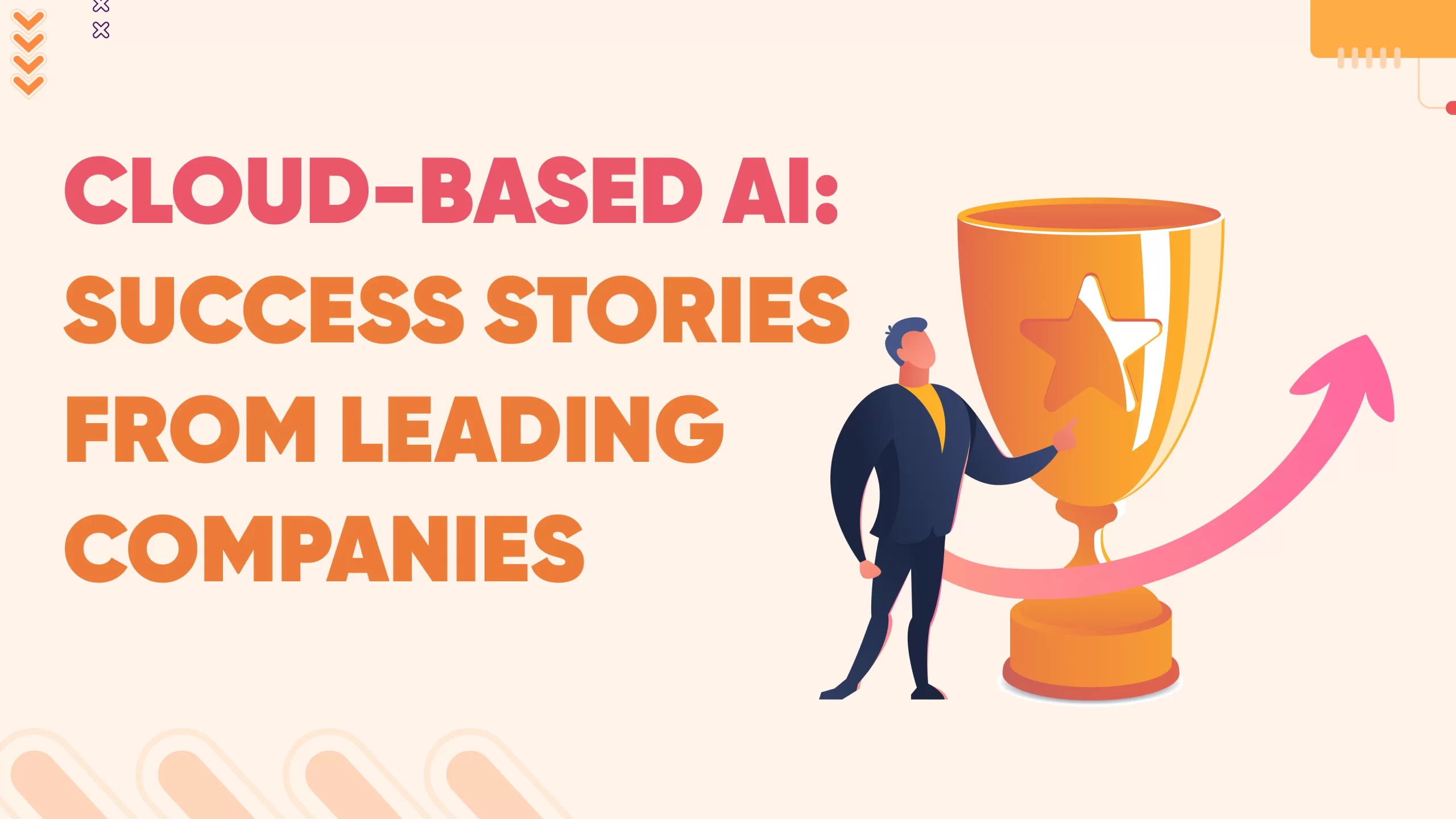
Cloud-Based AI: Success Stories from Leading Companies
As one of the world’s largest e-commerce platforms, Amazon utilizes AI algorithms deployed on cloud infrastructure to enhance customer experiences and drive sales.
Amazon’s recommendation engine is a prime example of how AI Cloud is used to personalize customer interactions. By analyzing user browsing and purchasing behavior, Amazon’s AI algorithms generate personalized product recommendations for each customer. These recommendations are prominently displayed on the Amazon website, in email campaigns, and even through targeted advertisements.
Amazon also employs AI-powered cloud chatbots to provide customer support and assistance. These chatbots leverage natural language processing (NLP) algorithms to understand and respond to customer inquiries in real time, improving efficiency and enhancing the overall customer experience.
Through integrating cloud computing and AI, Amazon continues to innovate and deliver tailored experiences to its customers, further solidifying its position as a leader in the e-commerce industry.
The Talent Challenge
As businesses increasingly rely on cloud and AI technologies to power their operations, the demand for skilled IT professionals has surged. Roles such as cloud architects, AI engineers, and data scientists are in high demand, commanding competitive salaries and offering ample opportunities for career growth.
Moreover, as the integration of cloud computing and AI becomes more prevalent across industries, the need for talent with specialized expertise continues to rise. Businesses are seeking professionals who not only possess technical skills but also demonstrate creativity, problem-solving abilities, and a deep understanding of business objectives.
In response to this talent shortage, IT staffing companies play a crucial role in identifying, assessing, and placing qualified candidates in high-demand roles. By leveraging their expertise and networks, these organizations help businesses overcome the talent challenge and build teams capable of driving success in the age of cloud computing and artificial intelligence.
Also Read: The Next Wave of Cloud Edge Technologies: Edge Computing and Its Impact on Businesses
The Future of AI Cloud Computing
Looking ahead, the future of artificial intelligence business, cloud, and AI adoption promises even greater innovation and disruption. By embracing the power of these transformative technologies, companies can unlock unprecedented efficiencies, drive innovation, and gain a competitive edge. Embracing this evolution isn’t just an option; it’s a necessity for those aiming to thrive in the future of work. As these technologies become more pervasive, businesses must adapt swiftly to stay ahead of the curve and seize new opportunities for growth and success.
FAQ
What is Cloud AI Integration?
Cloud AI Integration involves combining cloud computing services with artificial intelligence (AI) technologies to enhance business processes, automate tasks, and gain insights from data. This integration allows businesses to leverage AI capabilities without needing extensive on-premise infrastructure.
Why is the Cloud AI Market growing?
Several factors contribute to the growth of the Cloud AI Market:
- Increased Demand for AI Solutions: Businesses seek AI to enhance decision-making, automate processes, and improve customer experiences.
- Scalability and Flexibility: Cloud platforms provide scalable AI solutions that can grow with business needs.
- Cost Efficiency: Cloud-based AI reduces the need for expensive on-premise infrastructure and maintenance.
- Accessibility and Ease of Use: Cloud platforms make AI tools accessible to businesses of all sizes without requiring deep technical expertise.
What is Cloud Computing in AI?
Cloud Computing in AI refers to the use of cloud-based services and infrastructure to deploy, manage, and scale artificial intelligence (AI) applications. This approach allows organizations to leverage powerful AI capabilities without investing in expensive on-premise hardware.
Why is Cloud Computing important for AI?
Cloud Computing is crucial for AI because it provides:
- Scalability: Easily scale AI applications to handle large datasets and increased computational demands.
- Cost Efficiency: Reduce costs by paying only for the resources you use.
- Accessibility: Access AI tools and services from anywhere with an internet connection.
- Flexibility: Quickly adapt to changing needs and integrate new AI technologies.
- Advanced Infrastructure: Utilize cutting-edge hardware and software provided by cloud vendors.






